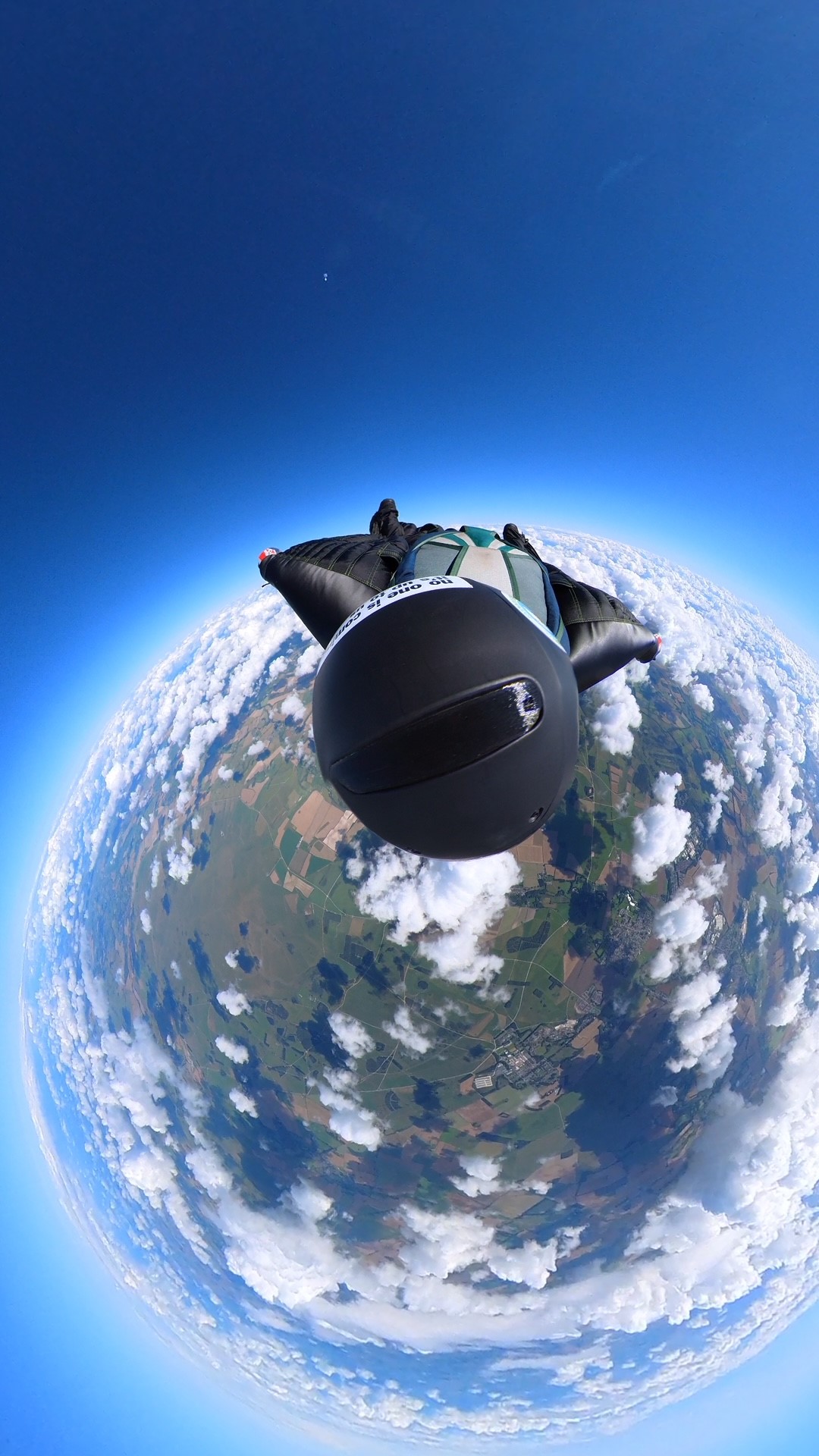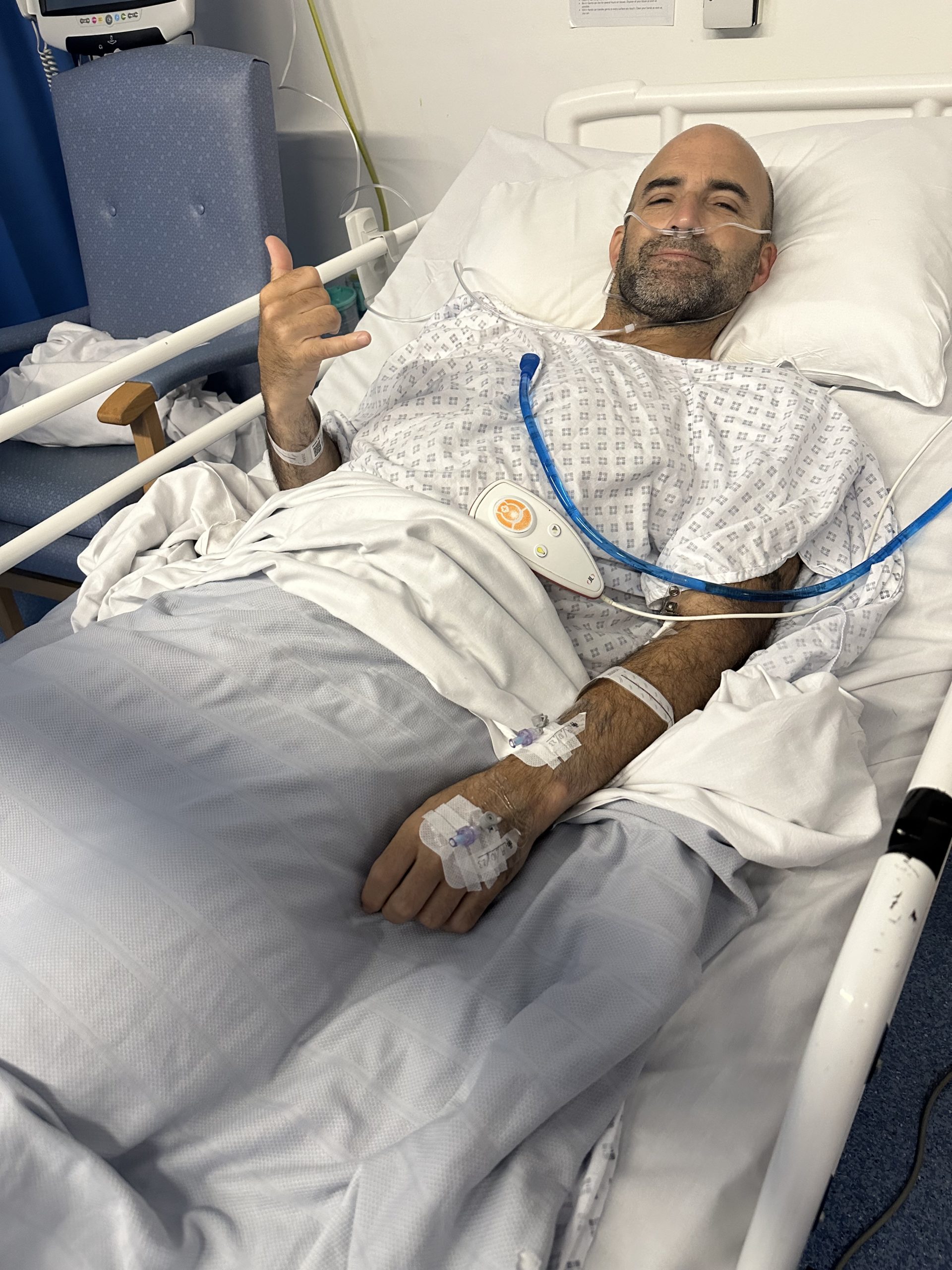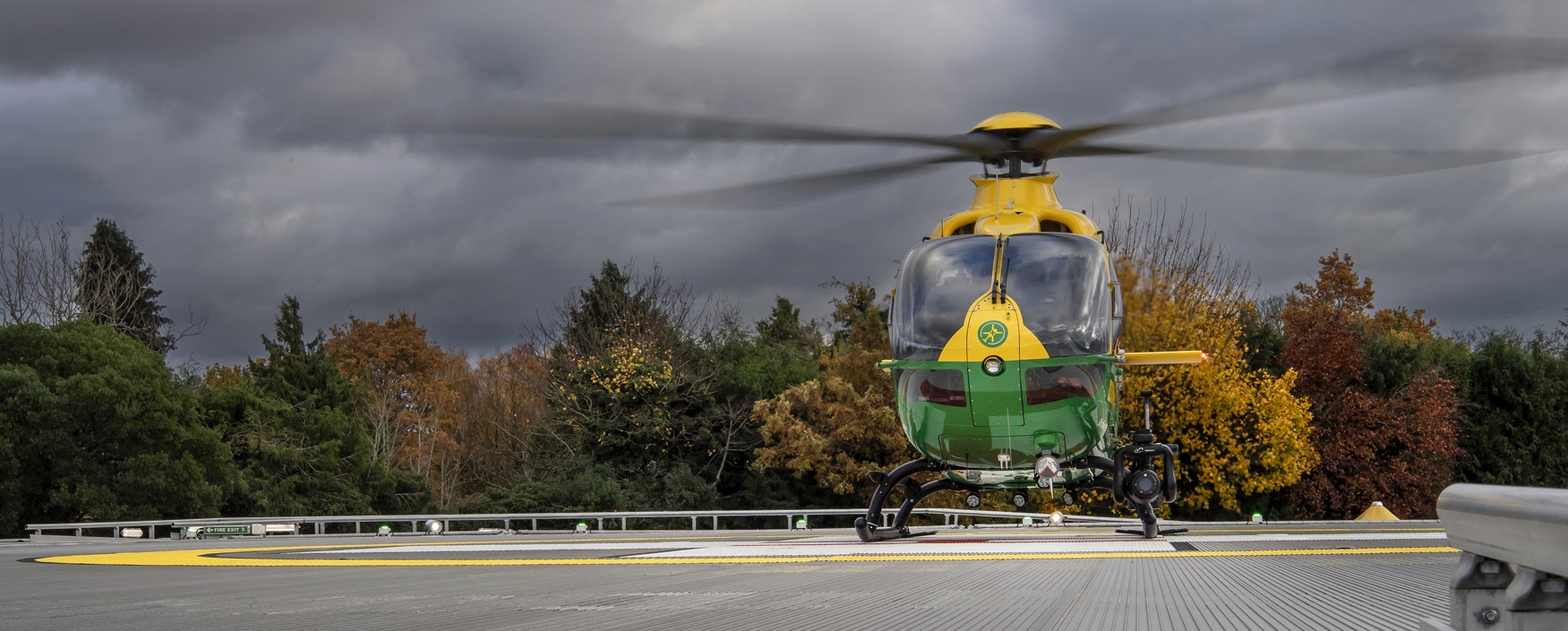“When the Air Ambulance landed, I remember just thinking thank God, I’m safe now. I knew that whatever happened next the outcome would be the best it could possibly be.”
Blue skies and light winds equal a perfect day for skydiving – especially if you’re about to launch into your 379th skydive. But, when a move he had learned the day before went horribly wrong, 47-year-old Michael Oakes came crashing into the ground beneath him, sustaining catastrophic injuries.
Former Royal Marines Commando Michael is no stranger to extreme and demanding sports, having completed an astonishing 18 Ironman Triathlons and six 100-mile ultramarathons.
Dive number 379

In October 2023, Michael took to the skies 15,000 feet over the Army Parachute Association at Skydive Netheravon, ready for his eighth jump that weekend. As he attempted the new manoeuvre, approximately 200 feet from the ground, something was wrong. And it was too late to correct it. Michael hurtled toward the ground at maximum speed.
Unbelievably, when Michael first hit the floor, he thought he was okay. But, just 10 seconds later, he was unconscious in a heap on the ground. The staff surrounded Michael and went into “emergency mode.”
“I was luckily jumping with a doctor who took control of the situation,” said Michael. “But, as time went on, I knew I was in trouble. The pain just kept increasing and with it the volume of my screams. I consider myself quite stoic, but I’d never felt anything like it before.”
Michael had suffered a burst L4 spinal fracture – a potentially life-changing injury.
Right place, right time
“We’d seen the Air Ambulance fly overhead on its way back to base from a separate incident,” he said. “It must have been retasked because they suddenly turned around and made straight for me.
“I can’t describe how I felt knowing that suddenly help was quite literally dropping in.”
“When the Air Ambulance landed, I remember just thinking thank God, I’m safe now. I knew that whatever happened next the outcome would be the best it could possibly be. I trusted them completely.”
The crew asked Michael some questions before cutting away his clothes and administering strong pain relief so he could be safely loaded onto the helicopter, ready to be flown to University Hospital Southampton. He spent the next seven days in the specialist spinal unit before being discharged home.
Road to recovery

“By some miracle my spinal cord appears unaffected,” he said.
“It’s going to be months-long, but I’m determined that I’ll work hard and recover. I should regain nearly 100% function and be able to do all the things that I used to do before.
“And yes, I will be jumping out of planes again once it’s safe for me to do so.”
“I find it hard to articulate how grateful I am. My hope is that somehow, the crew go home every day knowing that they’ve tangibly impacted lives for the better.
“We donate to these charities hoping that we’ll never need them, but without your donations and support I’d have been on the ground, perhaps for hours, in a pain I can’t describe – left unable to walk again. So, thank you everyone – I just don’t know how to make that small word bigger.”



 Donate
Donate







